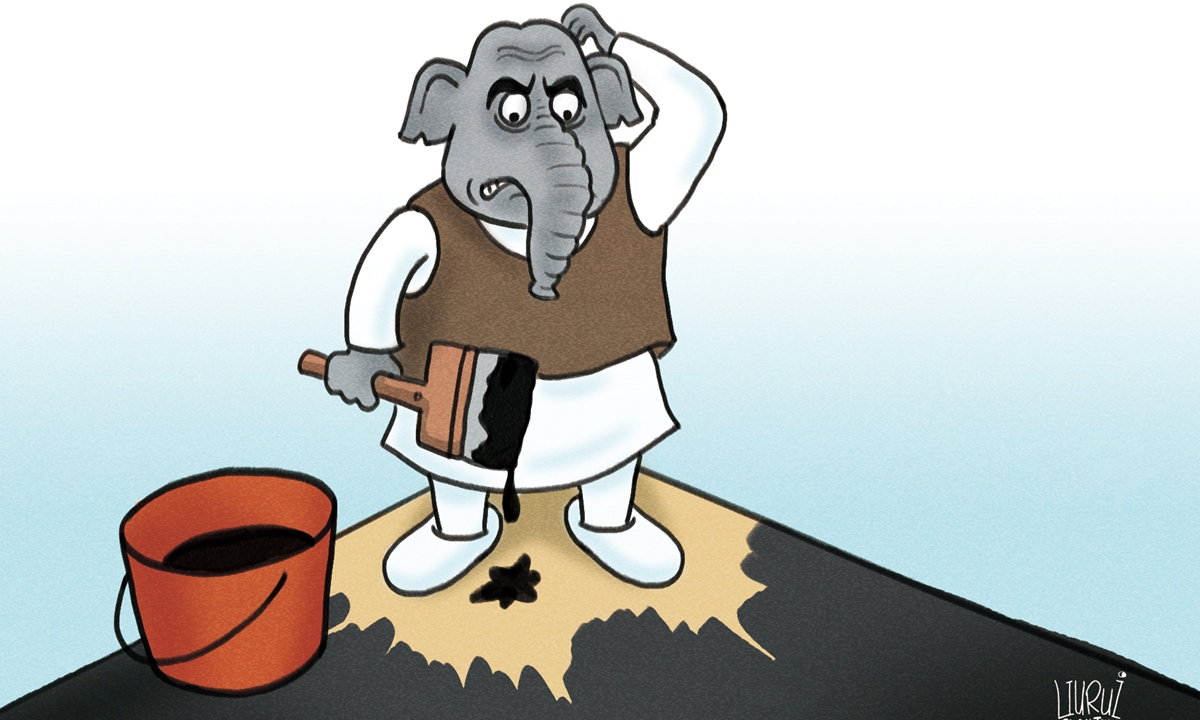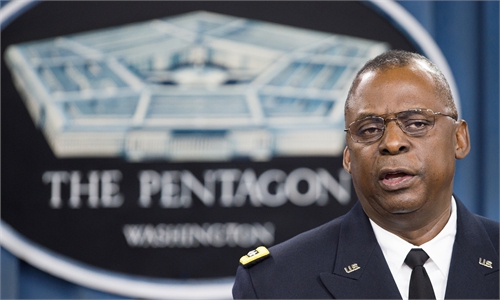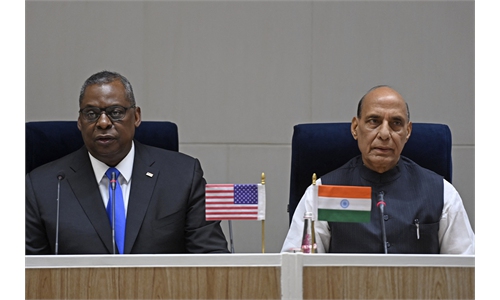
What next for India? Illustration: Liu Rui/GT
Out of an aspiration to be a great power and anxiety over China's rise, India's national strategy has been swinging in recent years. India has a vague positioning of its international status. As a neighbor of China, India is cooperating with the US' strategy to contain China. India is also trying to play an essential role in the Quadrilateral Security Dialogue, known as Quad, which triggered dissatisfaction from China and Russia. Some US elites do not want India's role to be limited with Quad - the so-called Asian NATO - and are discussing possibility to make India a NATO partner.
For example, the Hindustan Times published an article on Tuesday titled, "NATO: India's next geopolitical destination." It reads, "NATO must extend a formal partnership offer to Delhi; India must shed its hesitation."
The author of the article, A. Wess Mitchell, former US assistant secretary of state for European and Eurasian affairs who served in the Trump administration, wrote China's rise has "heightened India's need for closer security relationships with politically reliable, like-minded states." And that by strengthening ties with NATO, India will have "as many friends as possible in the right places" to deal with China.
This shows the profound influence of some hawkish politicians in the Trump administration, including former US secretary of state Mike Pompeo. Their deeply rooted anti-China insanity still echoes with many people worldwide. These US elites want to rope in as many countries as possible, and take advantage of these countries' disputes with China. It is evident they wish to expand their encirclement of China.
But making India a NATO partner is very unrealistic. It is merely wishful thinking by anti-China forces. Currently, it is nothing but an absurd idea. The US is not the only country in NATO. There are many other European countries in NATO who still want to develop economic and trade cooperation with China.
Becoming a NATO partner will only bring disadvantages for India. Apart from China, India is also trying to balance between Russia and the US. If India becomes a NATO partner, it will be a huge disaster for India-Russia relations. India and Russia share a special and privileged strategic partnership. There are no serious conflicts between the two sides on major international and regional issues. The two countries are close in terms of political, defense and military cooperation.
However, NATO, which was founded first and foremost to deal with the Soviet Union, is now turning to Russia again with a cold eye. If India is to be included in a security system like NATO, India-Russia relations would suffer a disastrous decline. Not to mention, there has already been a backlash in Moscow over New Delhi's strategic alignment with Washington in recent years.
So if India takes a substantive step toward NATO, the relationship between India and Russia will be greatly damaged. Russia can also take advantage of the opportunity to strengthen its cooperation with Pakistan in this light as a warning to India. If Russia intensifies its cooperation with Pakistan, India will face greater challenges in geopolitical security. India will not accept nor tolerate it.
In recent years, NATO has increasingly taken aim at China. Although the main concern for NATO is Russia at the moment, it sees China as a growing challenge as the center of international power is increasingly shifting to the Asia-Pacific region. NATO also wants to expand its influence in the Indo-Pacific and Asia-Pacific regions. As a result, NATO is likely to regard India's unique geographical location and its position in the so-called democratic camp as important. NATO may shift its resources toward the Indo-Pacific region to adapt to the changing world landscape. But Russia will remain a major concern for NATO.
The practicality of India's decision to become a NATO partner is almost zero. But if it really becomes a partner, this will mean that India's strategy undertakes a fundamental change to completely throw itself into the Western camp. In this case, India will enter a "new" circle. In so doing, it will also offend all members in its "old" circle. This will only put more geopolitical pressure on itself.
The author is director of the research department at the National Strategy Institute at Tsinghua University. opinion@globaltimes.com.cn



